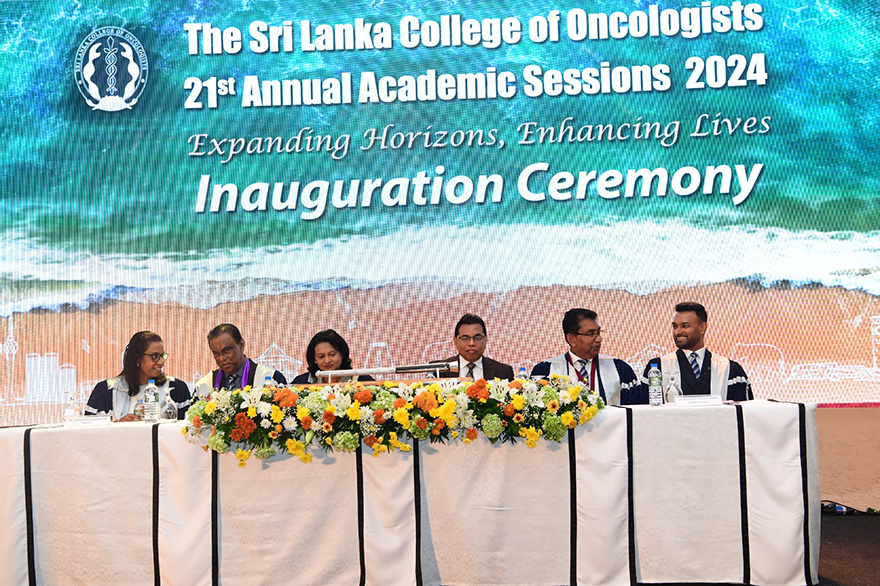News
Over 33,000 new cancer cases reported last year, resulting in 19,000 deaths, says Health Secretary at SLCO Symposium

Health Secretary Dr. Palitha Mahipala says that by addressing modifiable risk factors and promoting healthy lifestyle patterns, thousands of cancer cases can be prevented each year.Speaking at the inaugural session of the 21st Annual Academic Sessions of the Sri Lanka College of Oncologists (SLCO) at the Galadari Hotel in Colombo, Dr. Mahipala said that over 33,000 new cancer cases had been reported last year, and 19,000 persons had died due to cancer.
Dr. Mahipala highlighted the prevalence of oral cancer among men and cervical cancer among women, warning that the global population of new cancer patients was expected to increase by 77% by 2050.
The Sri Lanka College of Oncologists is the leading professional institution dedicated to advancing oncology in the country. Its objectives include fostering collaboration among oncologists, updating knowledge, and improving clinical practices. This year’s symposium, themed “Expanding Horizons, Enhancing Lives,” will feature lectures and practical experiences from both international specialists and local experts alongside the latest research findings in oncology.
The conference series ends today (14).
Dr. Mahipala emphasised that cancer was a significant global health challenge, with around 20 million new diagnoses worldwide in 2022, leading to over 9.7 million deaths. In Sri Lanka, the rising burden of cancer was evident, with over 33,000 new cases and 19,000 deaths last year. Those statistics showed that age, gender, or background did not affect cancer incidence, he said.
Dr. Mahipala pointed out that cervical, breast, and stomach cancers were the leading causes of cancer-related deaths in Sri Lanka, with oral cancer particularly prevalent among men (16.5 cases per 100,000 population in 1990) and cervical cancer affecting women at a rate of 27.3 cases per 100,000. The high incidence of those types of cancer highlights the urgent need for prevention, early detection, and treatment strategies, Dr. Mahipala said: “We have a responsibility as health service professionals to confront this challenge, especially as cancer incidence is expected to rise in low- and middle-income countries. A significant increase of 77% in new cancer patients is anticipated globally by 2050, with the most substantial growth in these regions.” He added that globally, 5% to 10% of all cancers were attributed to genetic mutations, while up to 95% were linked to environmental and lifestyle factors such as smoking, diet, and physical inactivity. “By addressing these modifiable risk factors and promoting healthy lifestyles, we can prevent thousands of cancer cases each year. Prevention is our most powerful tool in the fight against cancer, not only for its benefits but also for reducing the likelihood of preventable cancers that can lead to untimely deaths.”
During the event, Dr. Umagowry Saravanamuttu was inducted as the new President of the Sri Lanka College of Oncologists. Also present were former President Dr. Mahendra Perera, Secretary Dr. Buddika Somawardhana, and numerous other members and specialists of the College.